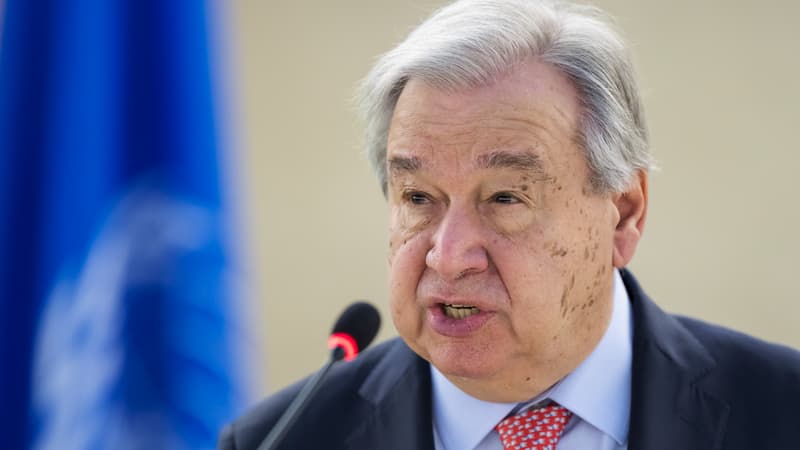Donald Trump said Tehran’s nuclear enrichment facilities had been “completely destroyed” after a series of US attacks on Sunday, June 22, the tenth day of war between Iran and Israel.
“The events of this morning are scandalous and will have eternal consequences,” warned Iran’s Foreign Minister Abbas Araghchi, who denounces “extremely dangerous, anarchic and criminal behavior” in the United States.
“Iran reserve all the options to defend their sovereignty, their interests and their people,” he added.
The Iranian atomic energy organization for its part denounced “a barbarian act that violates international law”, and said that “despite the evil plots of its enemies,” Iran “will not leave the way to the development” of its nuclear industry “to be arrested.”
Israel welcomes US intervention
On the Israeli side, the intervention of Washington, a historical ally of the Hebrew state. “His daring decision to aim at Iran’s nuclear facilities with the impressive and fair power of the United States will change history,” said Israeli Prime Minister Benjamin Netanyahu in a video message thanks to Donald Trump.
Sunday attacks are a “historical turning point that can help take the Middle East and beyond a future of prosperity and peace,” said the head of the Israeli government. “President Trump and I often say: peace by force,” he continued.
“First comes the strength, then peace comes. And tonight, President Trump and the United States acted with great force,” said Benjamin Netanyahu.
Iraq and Lebanon are concerned about a “threat” for “peace in the Middle East”
Iraq has condemned US strikes in nuclear sites in Iran, seeing a “military escalation” that “threatens security and peace in the Middle East” and “seriously puts regional stability.”
“Military solutions cannot replace dialogue and diplomacy,” said spokesman Bassem Alawadi, adding that the search for strikes “would lead to a dangerous escalation whose repercussions will overcome the borders of any state.”
In Lebanon, Prime Minister Nawaf Salam said his country should retire from this climb of tensions. “It is increasingly important for us to strictly respect the supreme national interest, which is the need to prevent Lebanon from being trained in some way in the current regional confrontation,” he called X.
The UN deplores a “dangerous climb”
The United Nations (UN) have shared their concern for US participation in the conflict in the Middle East. “It is a dangerous escalation in a region that is already in the rigid rope, and a direct threat to peace and security in the world,” deplored the United Nations Secretary General, Antonio Guterres.
In the rest of the world, British Prime Minister Keir Starmer deplores a “situation in the Middle East (which) remains unstable.” “In no case, Iran can be authorized to develop a nuclear weapon and the United States has taken measures to mitigate this threat,” he said in response to US attacks.
In Asia, Japanese Prime Minister Shigeru Ihiba said he was going to hold an emergency meeting this Sunday with his main ministers, according to Associated Press. The same in South Korea.
In Australia, a government official said that “he had clearly indicated that the Iranian nuclear and ballistic program is a threat to international peace and security.” “We take note of the statement of the US President that the time has come to make peace,” he added.
New Zealand Foreign Minister Winston Peters has urged “all parties to resume negotiations”, worrying about what the “most serious” crisis that faced. “Diplomacy will bring a more sustainable solution than a new military action,” he says.
Source: BFM TV


